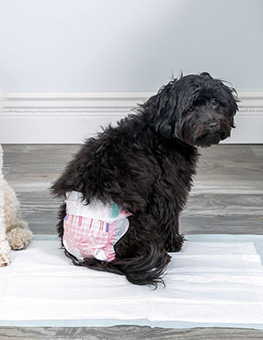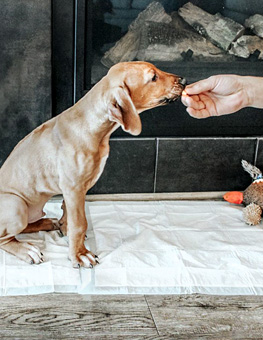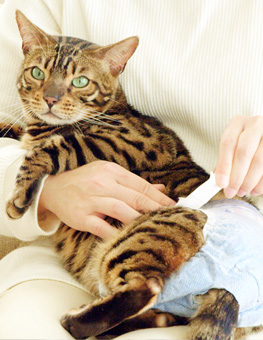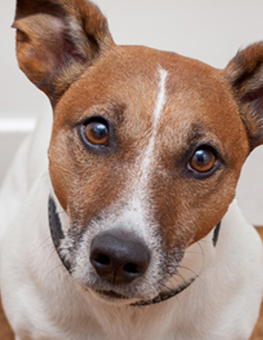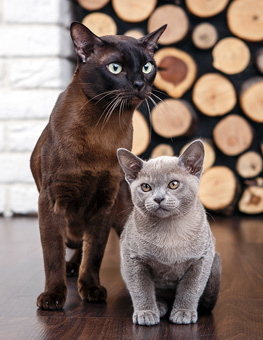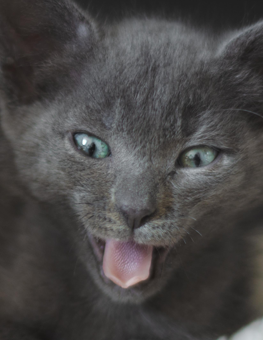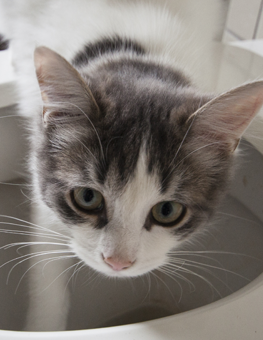How to Care for Handicapped Pets
Adoption of pets with special needs is at an all-time high, and that says something about how wonderful pet lovers really are. People who truly love pets never let a unique quality or a handicap stop them from caring for and sharing love with an animal.

Ensure that your handicapped pet can get around, get to food and water, and go to the bathroom.
Handicapped pets are often just as exuberant as their able-bodied counterparts, but may need extra love, attention, and tools to ensure that they can live their best life comfortably and happily.
If you are considering a special needs or handicapped pet, do your research to ensure that this type of pet will fit in with your current lifestyle and activity level.
Be sure that you have the time and finances to dedicate to a pet with special needs. For example, a pet that has a seizure disorder may need regular check-ups with a neurologist and advanced imaging techniques such as an MRI scan. Or, a pet with paralyzed hindquarters will need a wheelchair and maintenance for it; as well as a lot of husbandry if they are fecal or urinary incontinent.
Picking out the right special needs pet can take more time than selecting one of their able-bodied friends. This is very important to ensure that your pet and you fit perfectly together.
Adopting a Special Needs Dog
Adopting a special needs dog has a very broad meaning, but when it comes to dogs there are two major categories. Handicapped pets that have a physical disability or malformation. This means they require help getting around via a wheelchair, harness, or other mechanism. In this category, we also have our blind and deaf dogs.
Alternatively, special needs pets usually have medical conditions that need medication, monitoring, testing, and follow up to ensure that their condition is not worsening or changing. Unfortunately, this category of dogs is largely ignored when it comes to adoption, as they require a lot of care and management.
Ensure that your handicapped pet is doing well getting around, getting to food and water, and going outside to the bathroom. If you are hurting yourself because you have to carry your pet outside, you may benefit from a harness that has support in the front, rear, or both and has handles to help maneuver him without the risk of injury. It may be that a dog wheelchair is necessary, and this is a great option for dogs with high energy as this allows them to run and get exercise with supervision.
Thankfully, our blind and deaf dogs usually do not know they are any different from their friends. Some blind and/or deaf dogs do very well with a companion dog to help lead them around or give them cues. Some blind dogs need bumpers so that they prevent injury to themselves if they walk into something accidentally.
When it comes to special needs dogs, making a plan with your veterinarian is key. Be sure that there is a timeline in place for regular check-ups, as some medications need to be assessed every few months to ensure they are effective. Sometimes, more difficult conditions require care with an internist, neurologist, ophthalmologist, or other specialist. A good relationship with your veterinarian will always benefit your pet, but this is even more important if your pet has a complex disease process that needs to be managed carefully.
Adopting a Special Needs Cat

Research prior to adopting to ensure you can rise to the challenge of owning a special needs pet.
Cats are independent creatures. Missing a limb, the inability to hear, or missing an eye usually does not do them any disservice, however, it is necessary to keep these cats indoors as they are at very high risk outside due to predators, cars, etc.
Cats that need a wheelchair present a unique challenge, but there are wheels out there for them. Usually cats need longer periods to acclimate to a wheelchair than a dog. Completely blind cats may also wear a bumper collar. Almost all cats are small enough to carry if they have mobility issues, but independence is important to our feline friends, so giving them the ability to move around on their own is always at the top of the priority list.
Special needs cats with specific conditions such as a brain malformation (like feline cerebellar hypoplasia) effects the balance center. This means that traction is very important to her so ensuring that the food area is low to the ground and there is a traction mat can be very helpful. Severe cerebellar hypoplasia can really affect her quality of life and may be more difficult to accommodate at home.
Researching Special Needs Pets Prior to Adopting
There is a lot of information out there, and there are a lot of conditions and diseases that fall into the category of special needs pets. Do the necessary research on your potential companion’s conditions prior to adopting. Be sure to meet a potential pet before committing to their care. Use your best judgement to ensure that you can rise to the challenge of owning a handicapped or special needs pet. It is always worth it, and they make some of the best and most loving friends!





